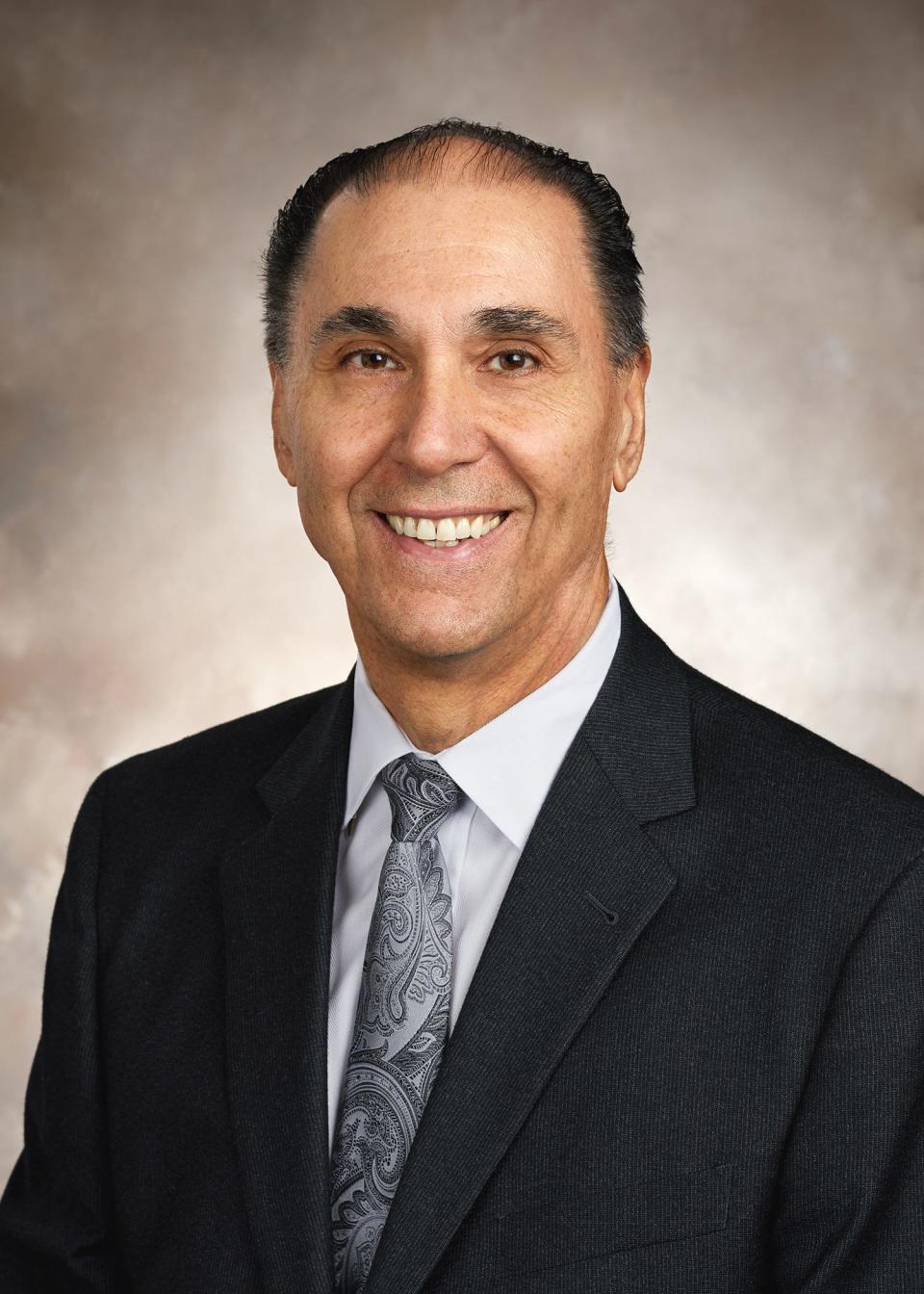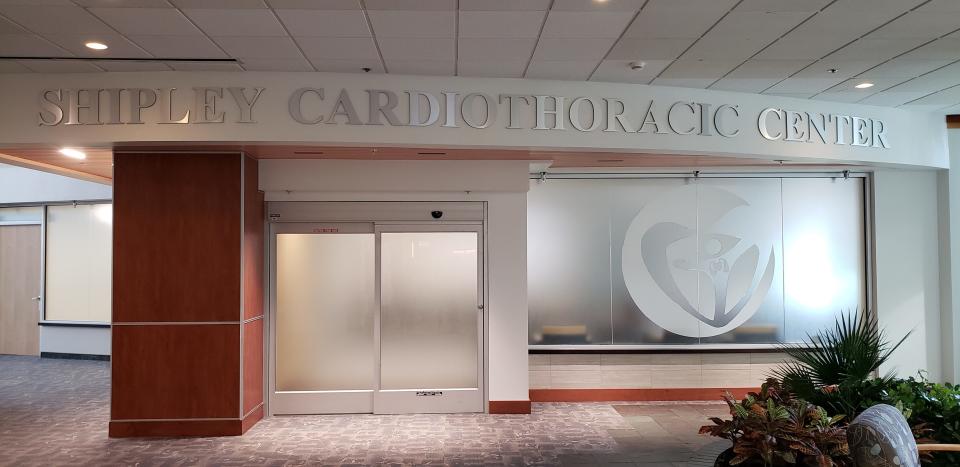Lee Health's possibility of going private hasn't captured public's attention yet. Will it?
A handful of Lee County residents addressed the publicly-elected Lee Health board Thursday wanting to know how accountability and transparency would be maintained if the system converts to a privately-run nonprofit system.
Others attending a public hearing on the issue said Lee Health would gain leverage it doesn’t have now to quickly address changes in the health-care industry if it goes private, which could include expanding outside of Lee County.
Turnout was low for the public hearing that was required of Lee Health as it moves through well-defined steps to consider a conversion in the months to come.
The hearing was held at Gulf Coast Medical Center in Fort Myers with about 25 people from the community attending and half a dozen speaking out.
The forum was not designed to be a question-and-answer session with the Lee Health board; that will come later at future public forums once a consultants’ report on the merits and drawbacks of a conversion is in hand. The consultants report is due Feb. 27.
Dr. Larry Antonucci, president and chief executive officer of Lee Health, gave a presentation on why a conversion is being considered, pointing to a key market change when the Florida Legislature in 2019 dropped a certificate-of-need requirement.

The law regulated when new hospitals could be built in communities and its elimination has lead to 65 new hospitals being built from 2020 to 2022 in the state, he said.
The open market dynamic makes it hard to compete against for-profit hospitals especially since Lee Health is a “safety net” system that by law must treat and stabilize all patients who come to its emergency rooms.
That mission of caring for the entire community would continue if the conversion occurs, Antonucci said.
More: Lee Health looking at converting to a private nonprofit entity
“That is something that is extremely important to us,” he said.
Lee Health is one of the largest public hospital systems in the U.S. and in Florida with a $3 billion operating budget, yet it does not receive direct taxpayer support through a property tax levy.
The system faces competition from private equity companies and from for-profit hospital companies with more commercially insured patients with higher reimbursement, lower charity-care volumes, and the option to expand in other markets to boost revenue.
Currently Lee Health is excluded from expanding beyond the county because of terms of its enabling legislation as a public hospital.
At Thursday’s public hearing, local resident Frank Geltner said that if the elimination of the certificate-of-need law was an issue, Lee Health should fight to get it restored.
“Is the Florida Legislature trying to kill public hospitals?” he asked.
More: Emergency rooms at Lee Health seeing long waits; patients urged to consider options
Al Rogala, a resident, wanted to know if Lee county residents would be on the hook financially if the conversion goes through and Lee Health expands outside the county but that doesn’t prove profitable.
“It seems like a little bit of a risk,” he said.
William Gruver, a retired investment leader at Goldman, Sachs & Co. who served on the board of the Geisinger Health System in Pennsylvania, said the safety net aspect of what Lee Health does now would not go away through a conversion.
Gruver said a private nonprofit system would enable the board “to move with much greater speed and foresight in a dynamic marketplace.”
What is prompting the conversion talks?
Lee Health’s board voted last fall to examine a potential conversion after the state Legislature passed a bill giving it the flexibility to explore it.
Soon afterwards the hospital board hired Kaufman Hall, Chicago-based consultants with experience in hospital conversions. A detailed analysis of the pros and cons is what’s due Feb. 27.
The consultants are looking at impact to patients, to Lee Health’s status as a safety-net hospital, its bond rating, its sovereign immunity protection against medical malpractice lawsuits and other issues.

The legislation outlines the steps, deadlines, and how the Lee County Commission must approve it.
The hospital board can decide at any time to drop the discussion and maintain status quo.
Town halls in smaller forums were held around the community earlier this month with attendance ranging from nine to 31 people from the community.
How big is Lee Health?
Lee Health operates four acute care hospitals with more than 1,865 beds, along with a 135-bed children’s hospital, skilled nursing units and dozens of outpatient care centers.
Its total operating revenue at the end of fiscal 2023, which ended Sept. 30, 2023, was $2.9 billion. The operating margin was 1.8%.
The total operating revenue budget for 2024 is projected at $3 billion. Salaries and wages for nearly 15,000 employees accounts for the largest chunk of $1.4 billion. The capital improvement budget is $264 million.
As a public hospital system, Lee Health receives tax breaks in exchange for providing what’s known as “community benefits” and it can issue tax-exempt bonds for capital projects at lower interest rates.
In 2022, Lee Health provided $165 million in community benefits after adjusting for foregone taxes of $84 million. Charity care came to $82 million.
For 2023, the amount of community benefits tallied $178 million, according to hospital officials.
Who are the competition?
The consultants’ evaluation will help determine what benefits there may be for local residents since Lee Health became a public system in 1968. Prior to that year, Lee Memorial Hospital, the only hospital that was part of the system, was a private nonprofit hospital.
With the elimination of the certificate-of-need law in 2019, HCA Healthcare announced it intends to build a 100-bed hospital at 3851 Colonial Blvd.
HCA had been in the Lee market but left in 2006 when it sold the former Gulf Coast Hospital, renamed Gulf Coast Medical Center, to Lee Health for $535 million.
The conversion evaluation will include:
The viability of the safety-net system; continuance of safety-net services and any impacts on indigent care
Long-term economic outlook
Potential impact on medical provider recruitment
Bonding capability
Sovereign immunity
Student loan forgiveness for employees
Once the consultants’ report is in hand, the board has until June 26 to evaluate the findings, weigh community input and vote on whether or not to move forward. A majority vote is required to proceed.
If the decision is to go forward, the board must develop terms of a conversion agreement with the Lee County Commission, which must approve it. That step must be done no later than Oct. 24, 2024.
From there the state must be notified of the transfer of Lee Health’s assets to a new nonprofit entity. The current 10-member Lee Health board would be disbanded but they could serve as the board of the new nonprofit organization.
This article originally appeared on Naples Daily News: Lee Health holds town hall for public input on becoming nonprofit system

